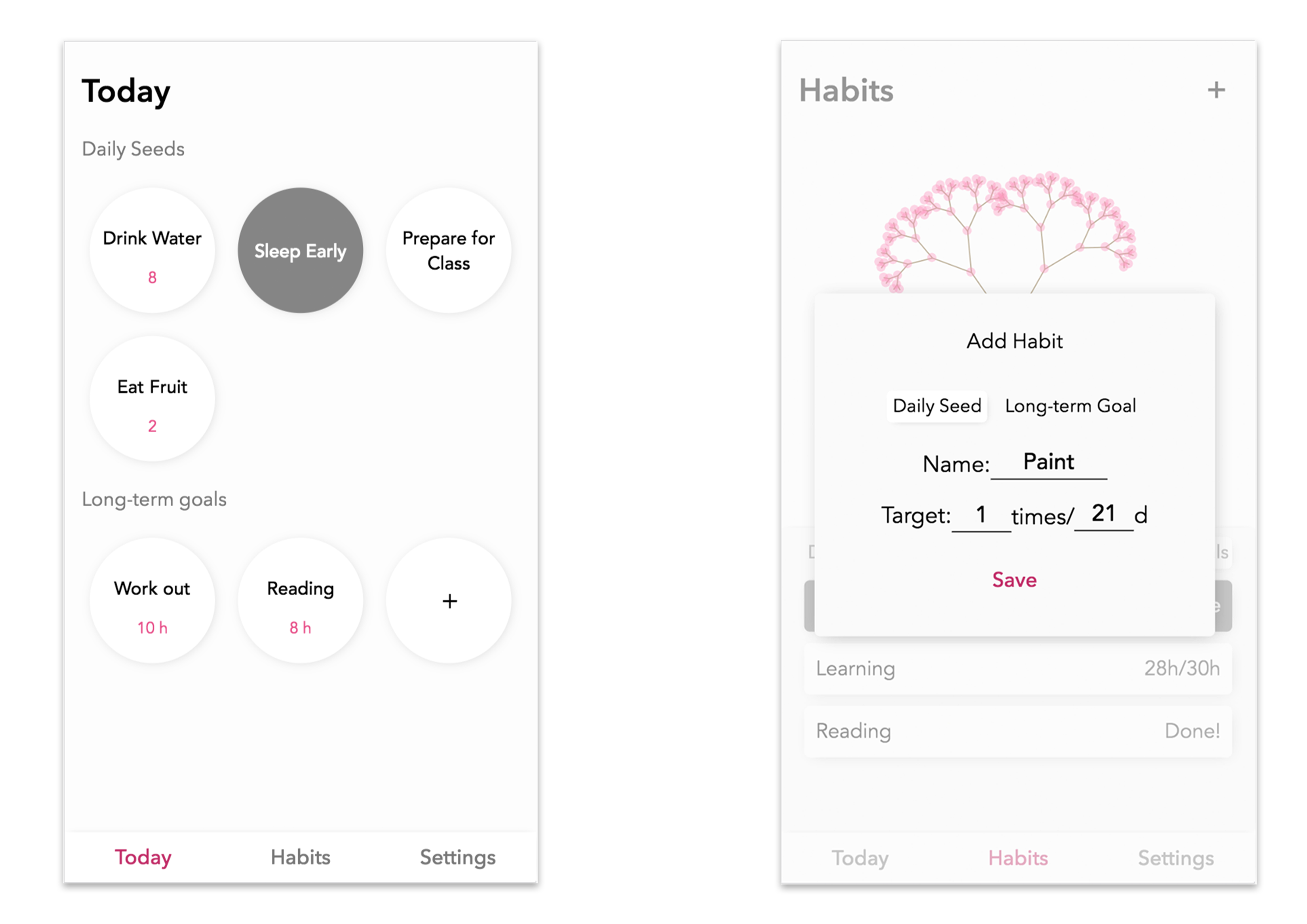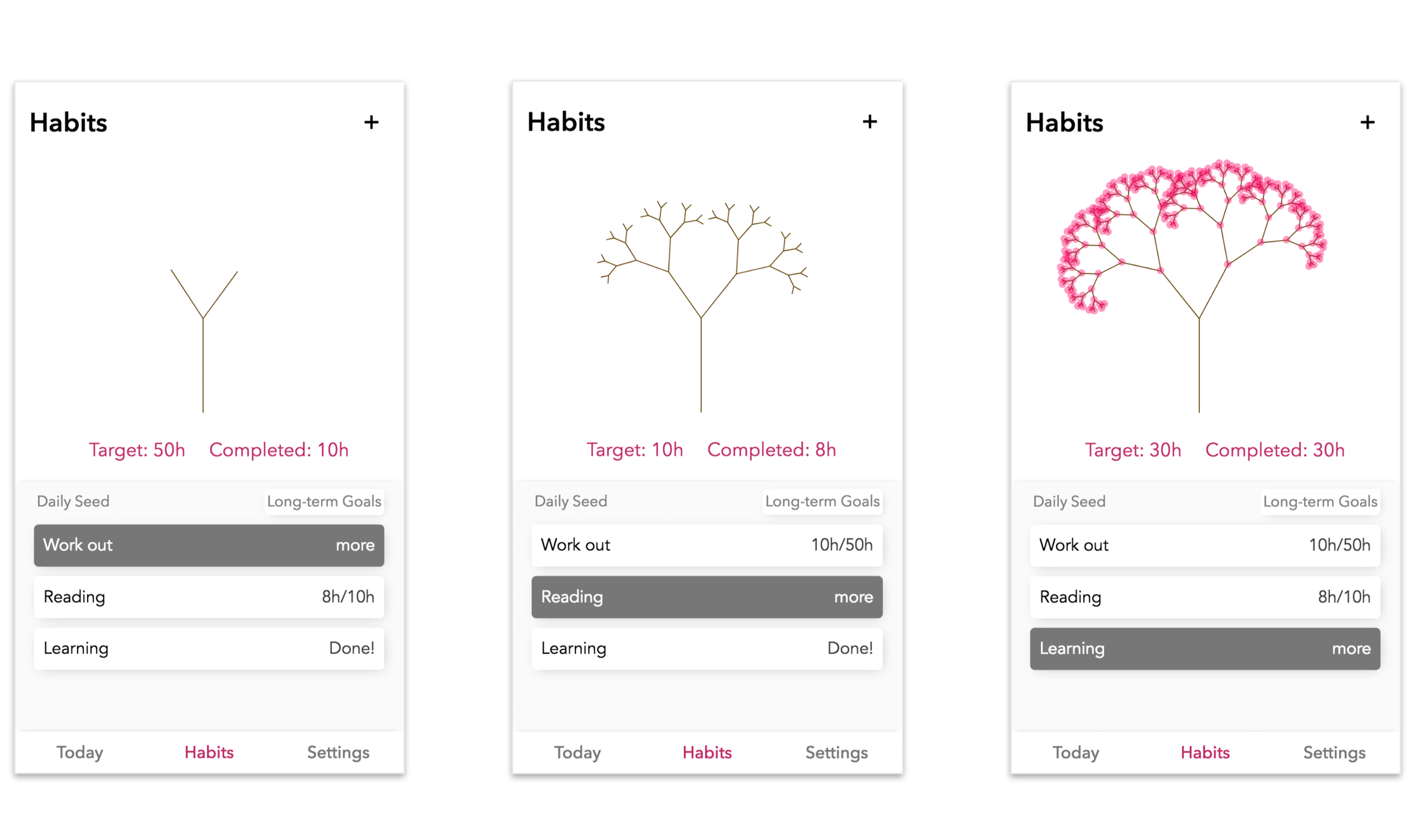Through the competitor research I discovered several problems that can be improved in existing habit traker apps:
- The lack of simplicity. Many habit tracker apps contain unnecessary elements such as icons and complex statistics, which rather than improve users’ productivity.
- The lack of consideration for different kinds of habits. Habits differ in many ways: some of them can be categorized to “daily checkers”, for example, sleep and wake up early, clean up the room, only eat vegetables. Some habits need to be counted in times or in minutes, for example, reading, working out, drink 8 cups of water. Existing apps often mix up these types and makes it hard to keep track of habits.
- The lack of stimulation system. The existing apps often use statistics to show the user’s performance in carrying out the planned habits. However, statistics take time to understand, and it’s easy to be frustrated by one’s bad performance. The data is cold and doesn’t offer enough stimulation.
Correspondingly, I designed Habitree to fix these problems. Habitree has a clear and useful categorization of habits and a creative stimulation system, realized by a combination of p5 and React. It divides habits into two categories, “daily seeds” and “long-term goals”. The user can even further specify their needs and target for different habits. For stimulation, I embedded trees that visualize the progress of each habit. Every habit has its own tree.



